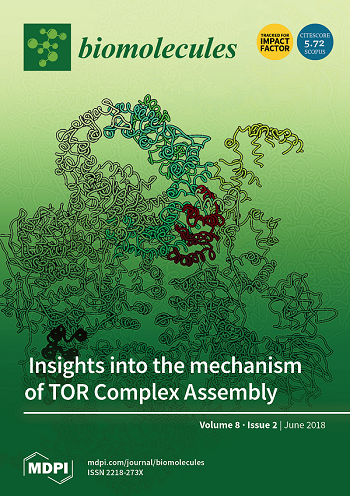AMPK Activation Serves as a Common Pro-Survival Pathway in Esophageal Adenocarcinoma Cells
IF 4.8
2区 生物学
Q1 BIOCHEMISTRY & MOLECULAR BIOLOGY
引用次数: 0
Abstract
Esophageal adenocarcinoma (EAC) is a subtype of esophageal cancer that is difficult to treat, with overall poor survival and frequent recurrence despite curative-intent treatment strategies. There is limited understanding of EAC resistance mechanisms to chemotherapy or radiation. We have found that the AMP-activated protein kinase (AMPK) can serve a pro-survival function in EAC cells in response to cytotoxic treatments. Treatment with the IL-6 inhibitor tocilizumab, which previously has been shown to inhibit EAC organoid growth, resulted in the activation of AMPK in the OE33 EAC cell line, which was accompanied by a decrease in MTORC1 signaling and an increase in oxidative mitochondrial metabolism, both known downstream effects of AMPK activation to promote cell survival under conditions of metabolic stress. This increase in oxidative metabolism was abrogated in cells with a genetic knockdown of AMPK expression. Furthermore, we found that AMPK was activated in OE33 cells following treatment with cisplatin or ionizing radiation. Treatment with the AMPK inhibitor Compound C or genetic knockdown of AMPK expression enhanced cell death in a synergistic manner with chemotherapeutics or ionizing radiation. These findings were recapitulated in human patient-derived EAC organoids, suggesting that AMPK may be a common pro-survival mechanism to confer treatment resistance in EAC and may serve as a novel target to enhance the efficacy of current and future treatment strategies.AMPK 激活是食管腺癌细胞常见的促生存途径
食管腺癌(EAC)是食管癌的一种亚型,难以治疗,尽管采取了根治性治疗策略,但总体生存率低且经常复发。人们对 EAC 的化疗或放疗耐药机制了解有限。我们发现,AMP-激活蛋白激酶(AMPK)可在EAC细胞中发挥促进生存的功能,以应对细胞毒性治疗。IL-6抑制剂托西珠单抗先前已被证明可抑制EAC类器官生长,它可导致OE33 EAC细胞系中的AMPK活化,并伴随着MTORC1信号传导的减少和线粒体氧化代谢的增加,这两种已知的AMPK活化下游效应都可在代谢应激条件下促进细胞存活。在基因敲除 AMPK 表达的细胞中,氧化代谢的增加被逆转。此外,我们还发现 OE33 细胞在接受顺铂或电离辐射处理后,AMPK 被激活。用AMPK抑制剂化合物C或基因敲除AMPK表达处理细胞,可与化疗药或电离辐射协同增强细胞死亡。这些发现在源于人类患者的EAC器官组织中得到了再现,表明AMPK可能是EAC中一种常见的促生存机制,可赋予EAC耐药性,并可作为一种新靶点,提高当前和未来治疗策略的疗效。
本文章由计算机程序翻译,如有差异,请以英文原文为准。
求助全文
约1分钟内获得全文
求助全文
来源期刊

Biomolecules
Biochemistry, Genetics and Molecular Biology-Molecular Biology
CiteScore
9.40
自引率
3.60%
发文量
1640
审稿时长
18.28 days
期刊介绍:
Biomolecules (ISSN 2218-273X) is an international, peer-reviewed open access journal focusing on biogenic substances and their biological functions, structures, interactions with other molecules, and their microenvironment as well as biological systems. Biomolecules publishes reviews, regular research papers and short communications. Our aim is to encourage scientists to publish their experimental and theoretical results in as much detail as possible. There is no restriction on the length of the papers. The full experimental details must be provided so that the results can be reproduced.
 求助内容:
求助内容: 应助结果提醒方式:
应助结果提醒方式:


